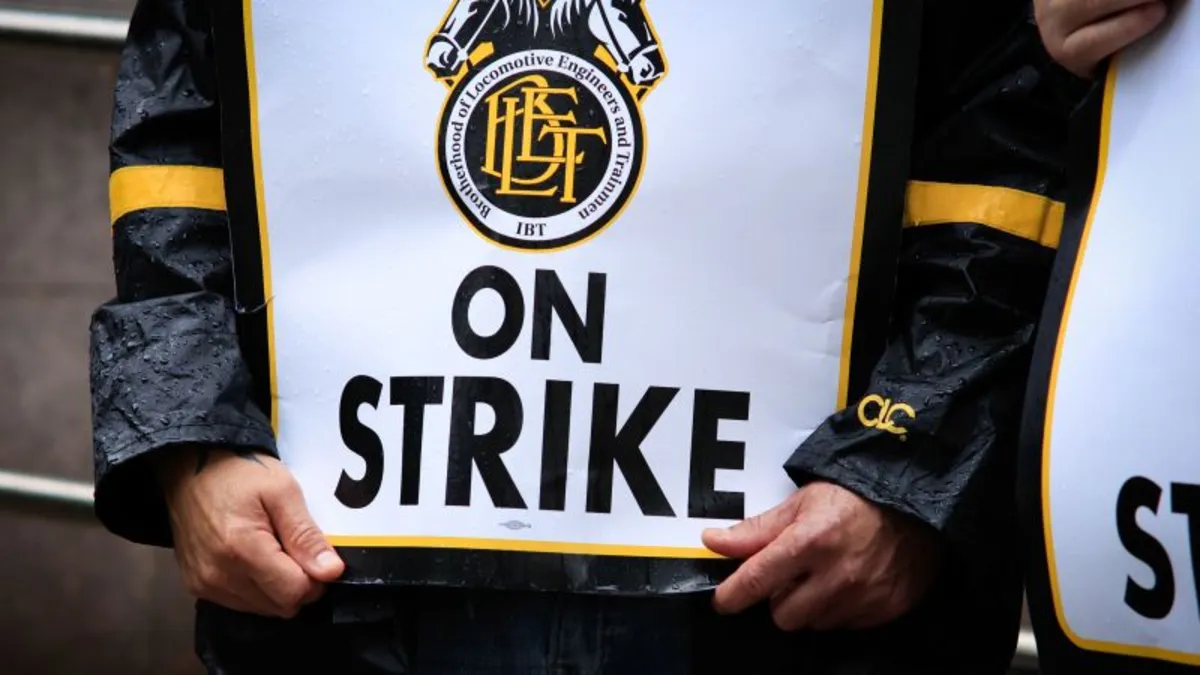
(CNN) – Negotiators representing New Jersey Transit and the Brotherhood of Locomotive Engineers and Trainmen (BLET), the union for 450 striking engineers, have successfully reached a tentative labor agreement. This development is expected to bring an end to the recent three-day strike, as confirmed by the union. Although New Jersey Transit has not commented on the union's announcement, CEO Kris Kolluri and New Jersey Governor Phil Murphy have scheduled a news conference for Sunday at 7:45 p.m. ET to provide further updates.
The striking engineers are anticipated to return to work on Monday. However, a spokesman for NJ Transit mentioned that train services are unlikely to resume until Tuesday due to necessary procedural steps that must be followed before operations can begin again. Initially, the union indicated that trains would be operational by Monday.
While the specific terms of the tentative deal have not been disclosed, it is important to note that the agreement must still be ratified by the majority of rank-and-file members. This step is crucial to eliminate any possibility of a resumed strike. Previously, an earlier tentative agreement was rejected by an overwhelming 87% of union members.
The strike, which commenced on Friday, posed significant disruptions for approximately 100,000 regular customers of the nation's third-largest commuter railroad. This included potential inconveniences for fans attending Beyoncé's five concerts starting Thursday evening at MetLife Stadium in New Jersey, located just 10 miles from Midtown Manhattan.
Tom Haas, the head of the union unit representing NJ Transit engineers, commented on the agreement, stating, “While I won’t get into the exact details of the deal reached, I will say that the only real issue was wages. We were able to reach an agreement that boosts hourly pay beyond the proposal rejected by our members last month.” He emphasized that the new agreement would enhance wages significantly compared to previous offers, addressing retention and recruitment challenges without imposing a budgetary strain or necessitating a fare increase.
Both parties had indicated on Friday that they were close to a deal, which would provide the engineers with their first raise since 2019. The union sought a resolution that would align their compensation with that of engineers at neighboring rail systems, including Amtrak and various commuter lines serving the Philadelphia area, northern New Jersey suburbs, and Long Island. The BLET reported a 10% decline in the number of engineers at NJ Transit since the beginning of the year, highlighting the urgency for wage parity with competing railroads.
Despite the union's efforts, both Murphy and Kolluri expressed concerns regarding the financial implications of meeting the union's wage demands. They noted that fulfilling these demands could trigger "me too" clauses in contracts associated with 14 other unions at the commuter service. These clauses would allow unions with existing agreements to adjust their pay raises to match whatever the engineers secure in their new deal. However, BLET President Mark Wallace asserted that the union had proposed solutions to provide the desired wage increases without activating the “me too” clauses affecting other unions.
Railroads operate under the Railway Labor Act, a century-old federal law that governs labor relations within the rail and airline industries, imposing restrictions on the ability of unions to strike. In instances where union members reject a contract, Congress can intervene and mandate that workers adhere to the terms of the deal, as was the case in December 2022 with major freight railroads. However, Congress has shown little inclination to act on commuter rail strikes, despite the potential for prolonged disruptions.
In past instances, strikes involving commuter rail services have lasted for weeks or even months without Congressional intervention. For example, New Jersey Transit experienced a month-long strike in 1983, while the Southeastern Pennsylvania Transit Authority endured a strike lasting 108 days in the 1980s. In light of these historical precedents, BLET’s Wallace expressed hope that Congress would remain uninvolved this time, stating, “I hope their stance is they’re going to stay out of our fight.”
This situation continues to develop, and updates will be provided as more information becomes available.